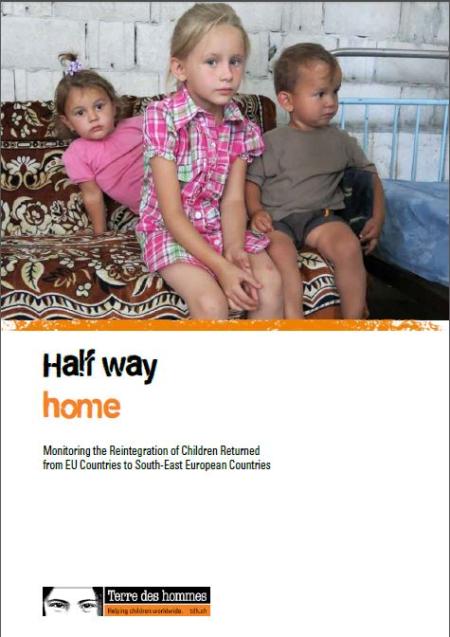- Zaloguj lub zarejestruj się aby dodawać komentarze
- 8 widoków
The present research was conducted as part of the Project “Monitoring the situation of children returned from EU Member States” – co-funded by the European Union’s Return Fund – aiming to document, analyze and improve the situation of children that have been returned from European Union (‘EU’) Member States to six South-East European (‘SEE’) countries, by ensuring that their best interests are upheld following the enforcement of a return decision. The research builds on the “Comparative Study on Practices in the Field of Return of Minors”:, carried out by the European Council on Refugees and Exiles (‘ECRE’) and Save the Children (EU Office)4. Overall, research activities started in April 2013 and ended in August 2014.
The research found no evidence that an in-depth analysis and balancing of the different factors that should be taken into account in order to identify a long-term durable solution that meets the child’s best interests were undertaken for any of the 120 children returned from EU to different SEE countries, before a return decision was made and implemented. In a few cases, judging from the difficulties faced in the country of origin, return did not even appear to be the most appropriate long-term solution to realize the child’s best interests. The situation of children within families appears to have been generally overlooked, and their best interests not systematically assessed by authorities in the host country.
The research highlighted several challenges that hinder the process of reintegration for children and families after return to the country of origin, in particular the lack of adequate access to the different services that they need (including health care, social assistance and support in obtaining official documents). This is due to the limited availability of services, eligibility requirements narrowing access, and also to the lack of information of children and families on the existing services, as well as to language barriers. Among the factors that foster successful reintegration of children in the society, access to education resulted to play a fundamental role. An inclusive atmosphere in school enables children to develop their potential and to acquire skills for future jobs, provides a sense of stability, increases self-esteem and allows space for making friends. Children’s reintegration in the education system is often hindered by several factors, including: discrimination experienced by children at school; lack of basic resources for families to enroll children in school; timing of the return (for example, in the middle of the school year); ‘administrative invisibility’; language barriers; and children and parent’s lack of trust in the importance of education.






